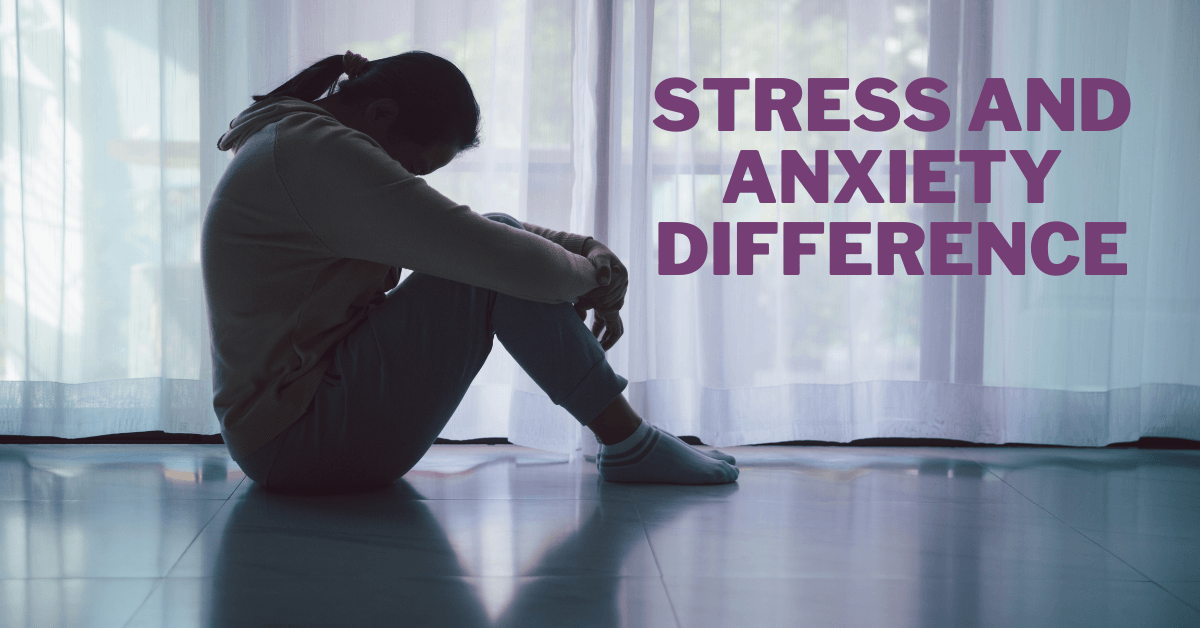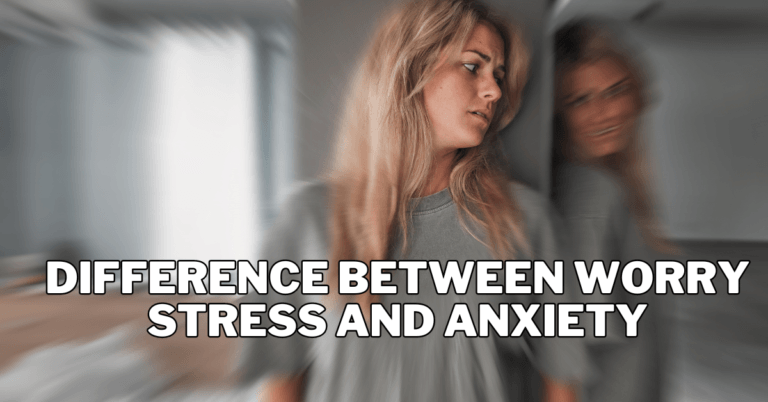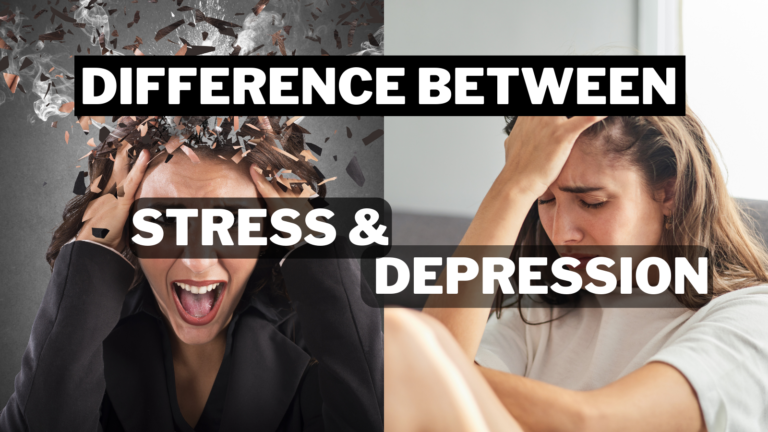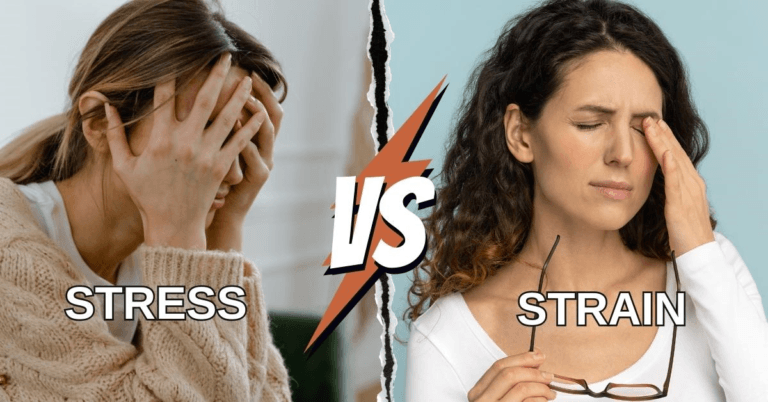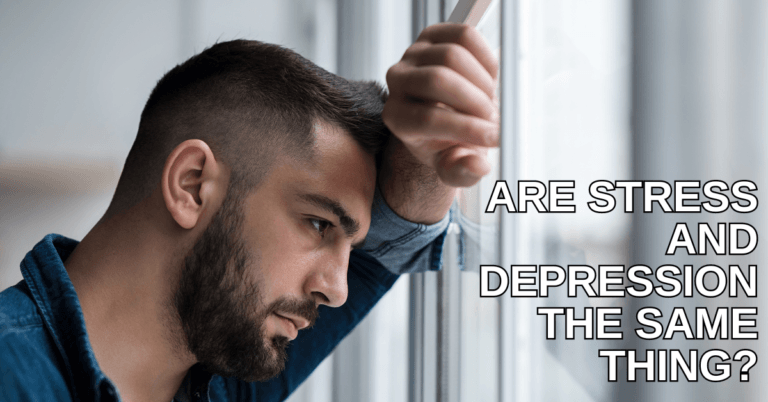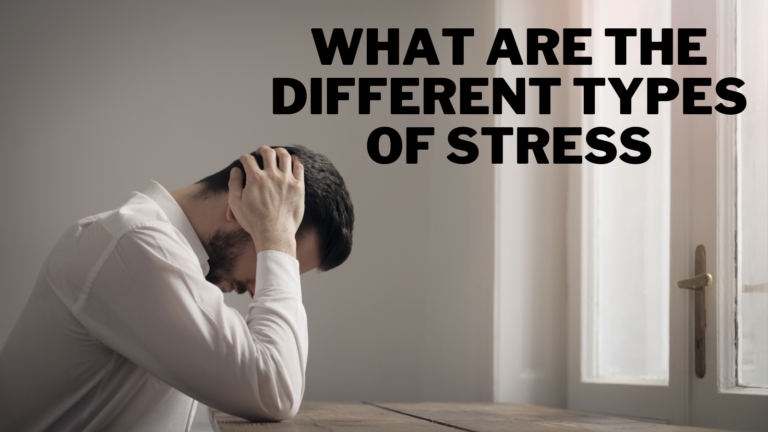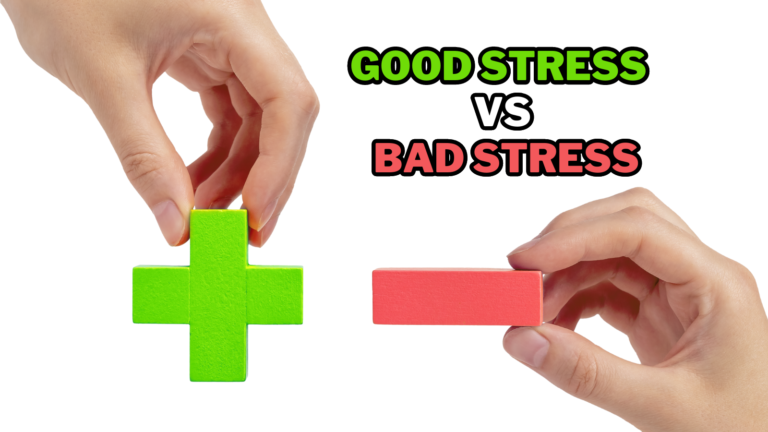Stress And Anxiety Difference
Stress And Anxiety Difference
The fight-or-flight response, the body's response to danger, is accompanied by natural feelings of stress and worry. This response guarantees a person is awake, concentrated, and prepared to handle a threat.
Stress and anxiety are natural responses to daily challenges and pressures. However, their impact on our well-being and mental health can vary significantly.
By exploring the contrasting features of stress and anxiety, we can better understand each and discover effective coping strategies.
This article aims to shed light on the distinctions between stress and anxiety, unravelling their underlying causes, symptoms, and effects on individuals.
By clarifying these two commonly experienced phenomena, readers will be better equipped to navigate their emotional landscape and seek appropriate support.
Exploring The Causes, Signs, And Treatment Of Stress
Stress is a normal reaction when we feel threatened or under physical, emotional, or psychological pressure.
It frequently only lasts a short while and is brought on by particular circumstances, such as work deadlines, tests, or confrontations.
While severe or ongoing stress can have negative consequences on our mental and physical health, it can also be a motivating factor that drives us to perform better.
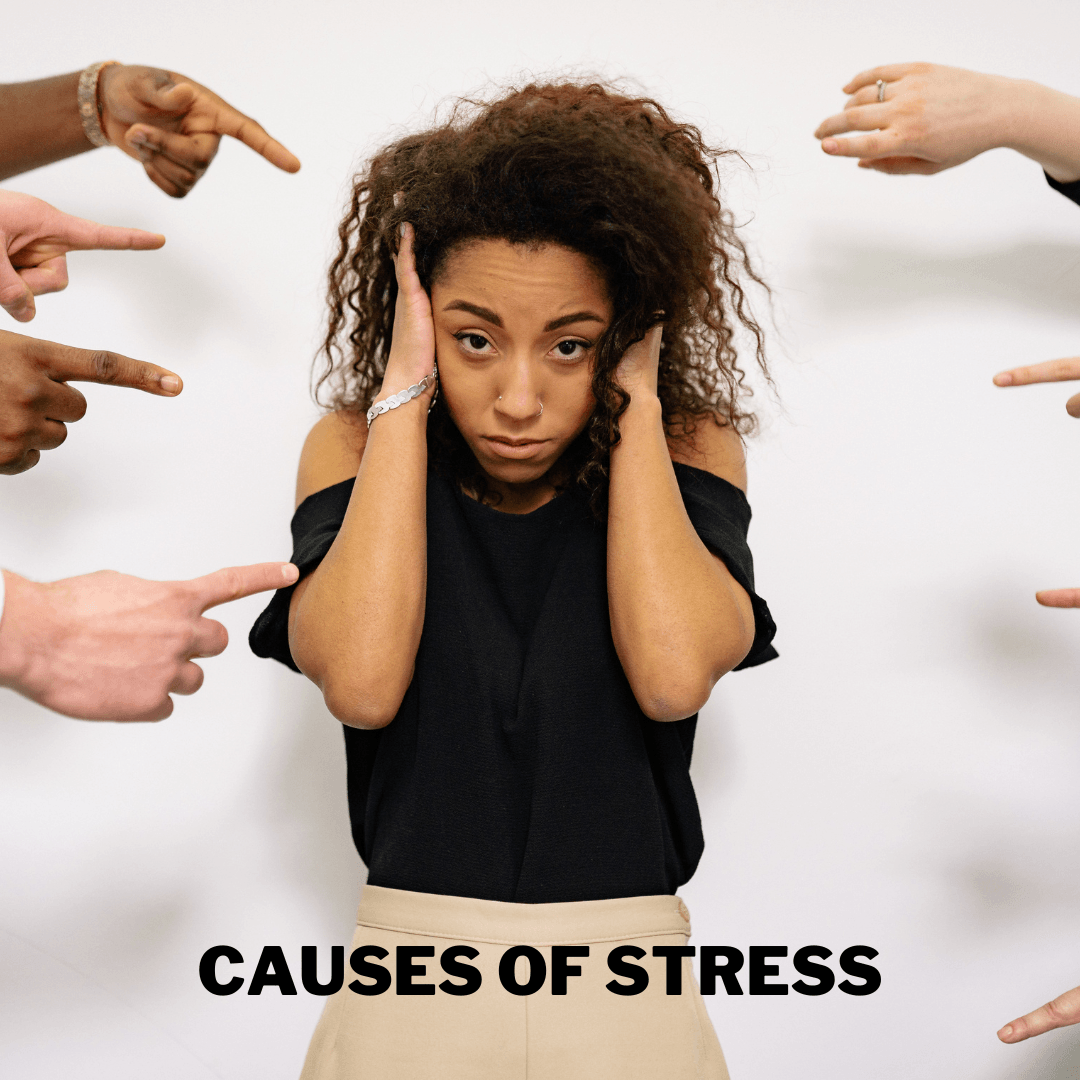
Causes Of Stress
Major life events and minor difficulties are two different categories of stressors. A person's sense of stability and security can greatly impact major life events, including work changes, relocation, divorce or separation, and losing a loved one.
These occurrences frequently necessitate sizable adjustments and can breed uncertainty, which raises stress levels.
Financial issues can also be a major source of stress, whether you're dealing with debt, unemployment, or economic instability.
Aside from significant life events, daily difficulties also add to the stress. Chronic stress can result from persistent pressure to perform well due to heavy workloads, short deadlines, and demanding duties.
Time constraints and a sense of being overburdened with responsibilities may further exacerbate stress levels.
Daily frustrations and stress can also be increased by routinely coping with traffic jams, lengthy commutes, or transit problems.
Relationship conflict, whether with a spouse, child, family member, or even a coworker, may also be a big stressor because it impacts our mental health and social interactions.
Understanding that everyone experiences stress differently and that no universally accepted list of causes exists is crucial.
Some stressors may not have the same effect on different people as they might on others. The degree of stress felt is determined by the particular confluence of one's circumstances, coping strategies, and perceived capacity to deal with difficulties.
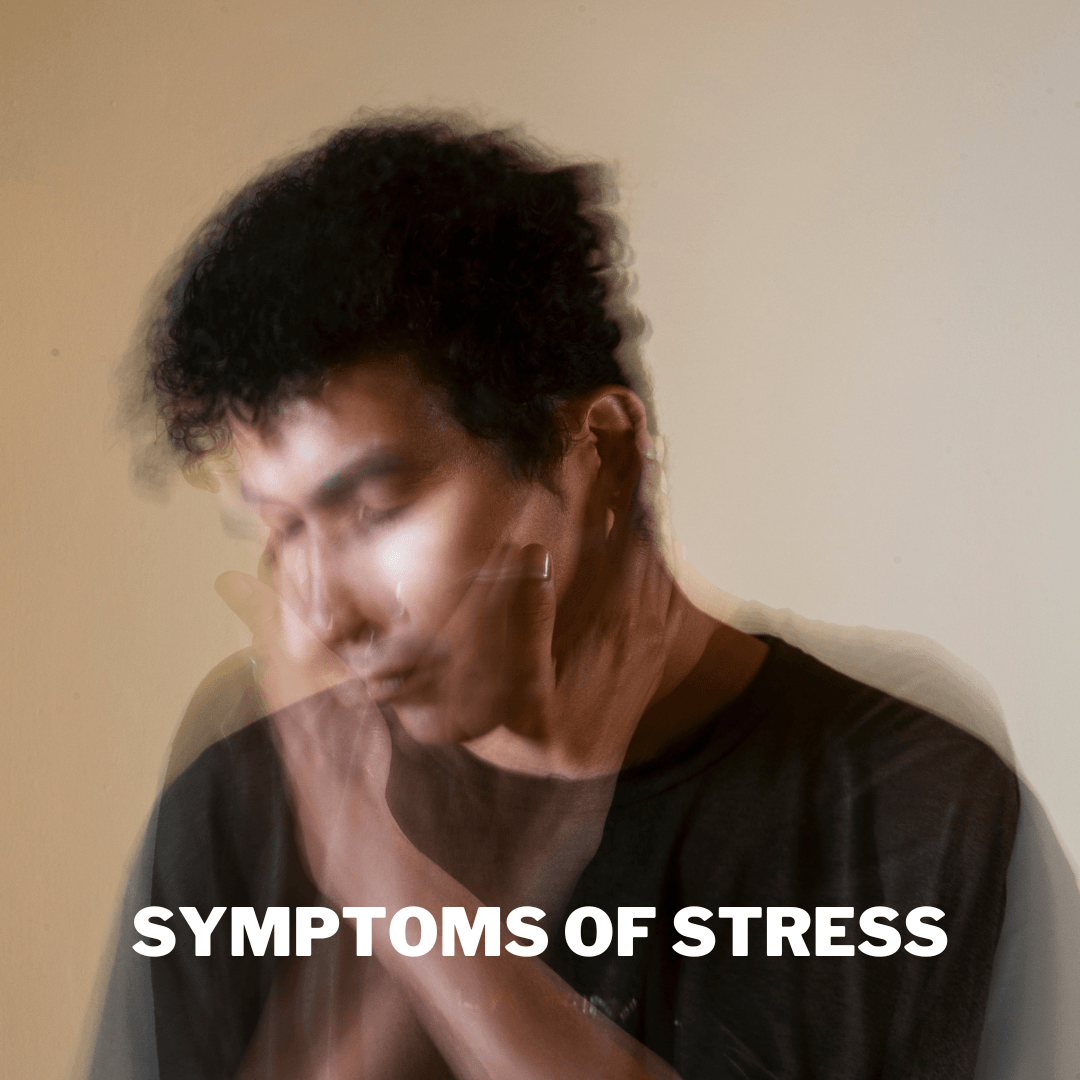
Symptoms Of Stress
Stress can have a significant negative impact on both our physical and emotional health, resulting in a variety of symptoms.
Stress can affect a person's mood, causing them to become easily agitated, have frequent mood swings, or feel restless and tense.
Additionally, because their minds may be busy with worries or concerns, they could have trouble focusing or making judgments.
Stress can appear in a variety of ways. Common physical symptoms include headaches and strains in the shoulders and neck muscles, so fatigue and a lack of energy are often frequent.
Stress can interfere with the regular functioning of the digestive system, resulting in stomachaches, nausea, or changes in bowel habits.
Another potential symptom is changes in appetite, which can vary from person to person. Some people may have an increased appetite and overeat, while others may experience a decreased appetite and lose weight.
Stress and sleep disorders are related, as sleep problems include trouble getting asleep, keeping asleep, or having restless nights.
In chronic stress circumstances, where the stress reaction is sustained or prolonged, more serious health problems may appear.
The body's persistent activation of the stress response is linked to cardiovascular issues like high blood pressure and an increased risk of heart disease.
A malfunction of the immune system can reduce one's ability to fight against diseases and infections.
Persistent stress is also associated with an increased risk of mental health issues like depression and anxiety disorders.
These symptoms must be observed closely to identify them as potential stress indicators. By recognizing and accepting the existence of stress-related symptoms, people can actively manage and reduce stress, enhancing overall well-being and averting the possible worsening of existing health issues.
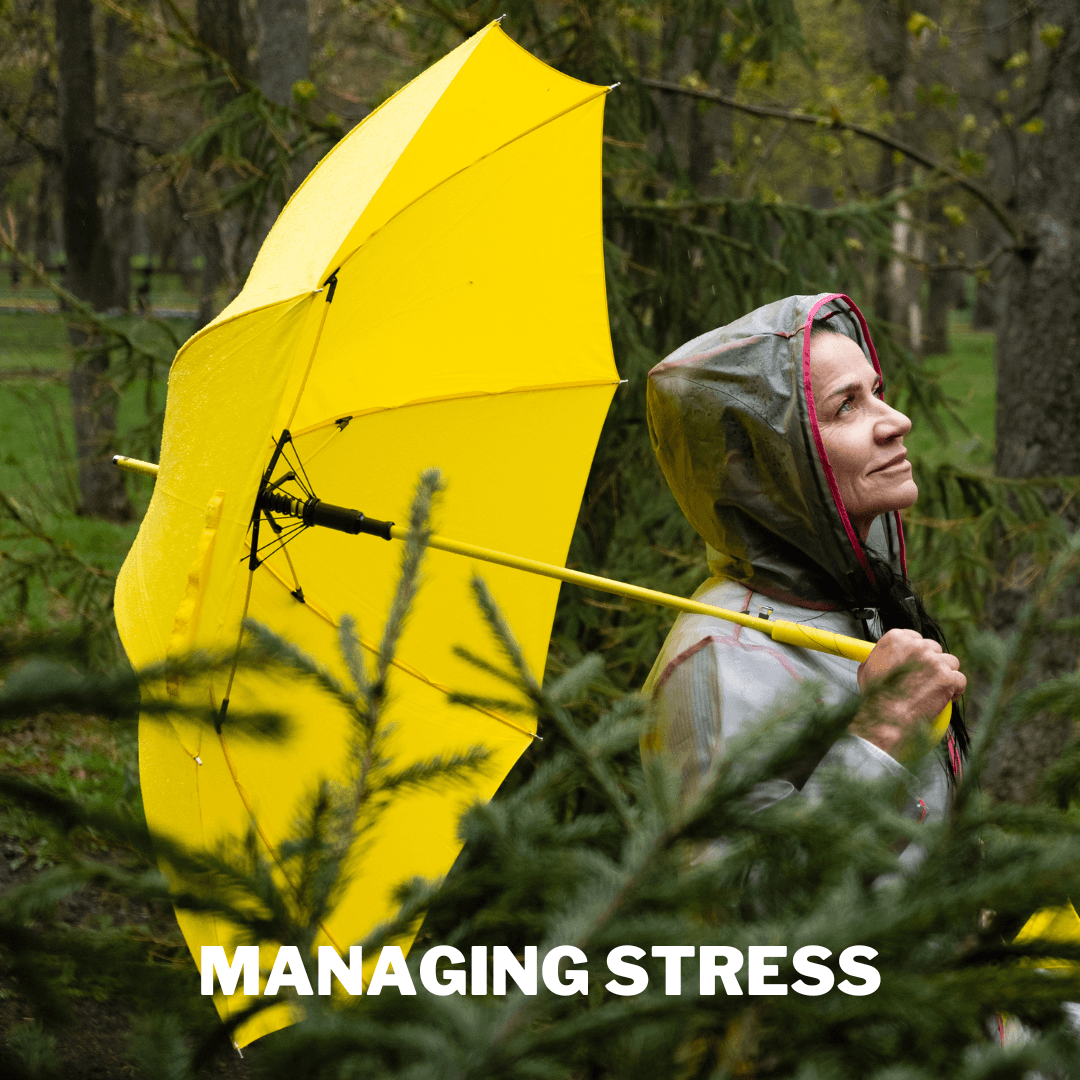
Managing Stress
Several ways may be used to properly manage stress, which is crucial for general well-being. Using constructive coping techniques is one strategy.
Regular exercise lowers stress levels and encourages the release of feel-good chemicals called endorphins.
The mind can be calmed, and relaxation techniques like meditation and deep breathing can reduce stress.
The body has the resources to deal with stress when consuming a nutritious, well-balanced diet. Enough sleep is essential for good cognitive functioning and regeneration.
A necessary respite from pressures can be obtained by engaging in enjoyable and relaxing activities, such as hobbies or time spent in nature.
Another crucial component of managing stress is turning to social support. A sense of relief and perspective can be gained by discussing worries with dependable friends or relatives.
Being surrounded by encouraging people can be consoling when things are tough. Establishing boundaries is essential for stress management.
Stress levels can be decreased, and overwhelming circumstances can be avoided by learning to say no when necessary.
It's also advantageous to learn efficient time management. Procrastination-related stress and feelings of overburden can be avoided by appropriately allocating time for various chores and activities.
Productivity and stress levels can be increased by breaking jobs into smaller, more manageable chunks and using tools like calendars or to-do lists.
In conclusion, maintaining a healthy lifestyle requires identifying and successfully managing stress.
Individuals can better manage stressful events and retain their well-being by applying efficient time management techniques, setting boundaries, seeking social support, and adopting good coping mechanisms.
People can better deal with stressful events and preserve their general well-being by adopting good coping methods, seeking social support, setting boundaries, and using efficient time management techniques.
Exploring The Causes, Signs, And Treatment Of Anxiety
A constant and overwhelming worry or fear about upcoming circumstances or events is referred to as anxiety.
It interferes greatly with day-to-day life and goes beyond the usual symptoms of stress. Millions of individuals worldwide are impacted by anxiety disorders, one of the most prevalent mental health issues.
The causes, symptoms, and effects of anxiety on particular people can be better understood by comprehending its nuances.
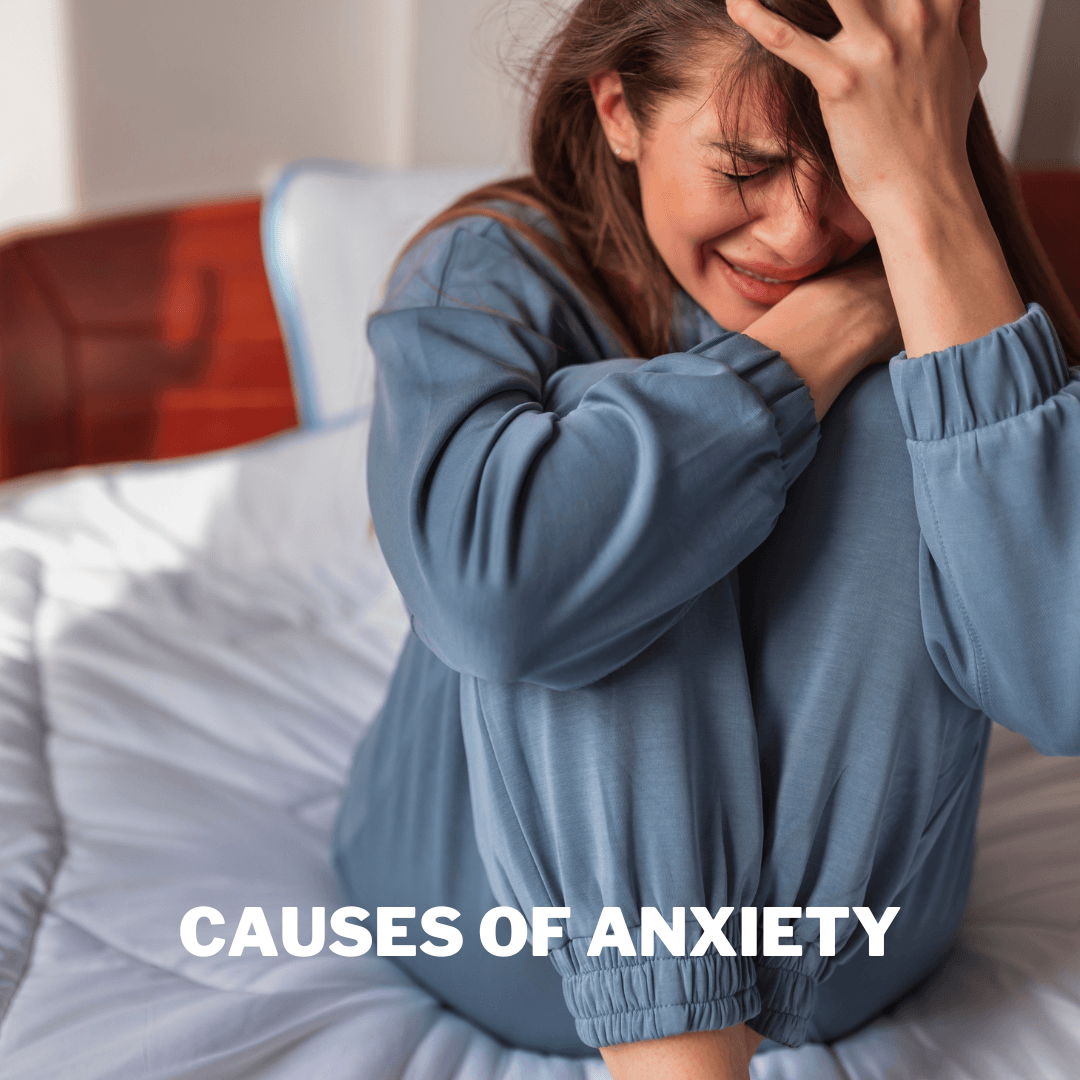
Causes Of Anxiety
Anxiety can have a variety of complex and varied origins. Numerous elements contribute to the emergence of anxiety disorders, even if it can be difficult to identify a single cause.
An individual's vulnerability to anxiety is influenced by genetics. Some persons may have a genetic predisposition to developing anxiety problems.
This genetic propensity may impact the control of mood and emotions, affecting how some neurotransmitters work in the brain.
Environmental circumstances can also influence anxiety development.
Traumatic events can significantly affect mental health, including physical or emotional abuse, accidents, natural catastrophes, and witnessing violence.
These events can leave emotional scars that linger and raise the risk of getting anxious.
Personality characteristics and learnt behaviours are just two examples of the many personal elements influencing outcomes.
Some people are more prone to anxiety because they are naturally inclined toward excessive concern or perfectionism.
Furthermore, certain cognitive tendencies, such as catastrophizing or negative thinking, can support the emergence and maintenance of anxiety disorders.
There may also be a role for long-term medical issues. Increased anxiety levels might result from stress and uncertainty brought on by having a chronic illness or dealing with ongoing physical health issues.
Anxiety disorders can also be more likely to develop if a person uses drugs or has a history of doing so.
Another factor that can make someone more prone to anxiety is a family history of the condition. Moreover, there might be a genetic element.
There could be a hereditary component and shared contextual and learned behaviours within the family system.
It's crucial to remember that anxiety can have various reasons depending on the individual and that, many times, several elements work together to cause anxiety disorders to manifest.
Identifying and treating anxiety can be made more efficient by people and healthcare professionals by better understanding these potential causes.
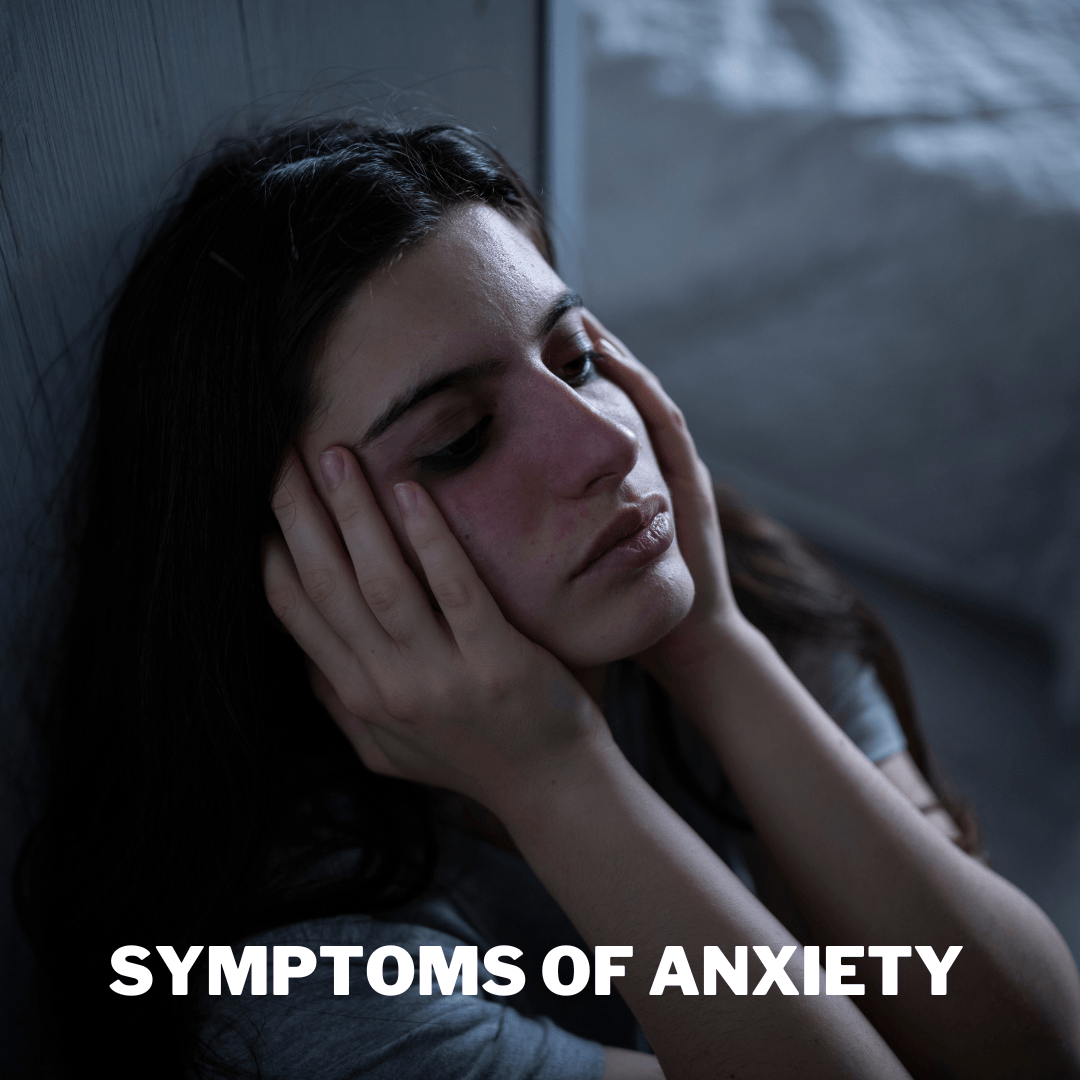
Symptoms Of Anxiety
A person's emotional health, cognitive abilities, and worldview can all be impacted by various anxiety-related symptoms.
Anxious people may consistently feel uneasy or dreadful emotionally. They frequently experience excessive anxiety compared to the real threat or circumstance.
This excessive worry can result in a condition of perpetual awareness, which can make people easily impatient and prone to feeling overwhelmed.
Additionally, anxiety can heighten the startle reflex, making people more sensitive to sudden or unexpected stimuli.
Cognitive signs of anxiety include racing thoughts, difficulty focusing, and a propensity to dwell on unfavourable scenarios.
Excessive ruminating is common among anxious people, who frequently replay worst-case scenarios or foresee damaging consequences.
As their minds fill with worry and “what if” situations, they could find it difficult to concentrate on chores or make judgments. This cognitive impairment may make people feel even more anxious and distressed.
Increased perception of prospective risks or dangers is another typical sign of anxiety. People may view normal circumstances as extremely dangerous, leading them to become unduly cautious or avoidant.
Because of this inflated perspective, people may avoid particular situations or activities out of fear or discomfort. The anticipation of stressful situations can cause emotional and physical distress.
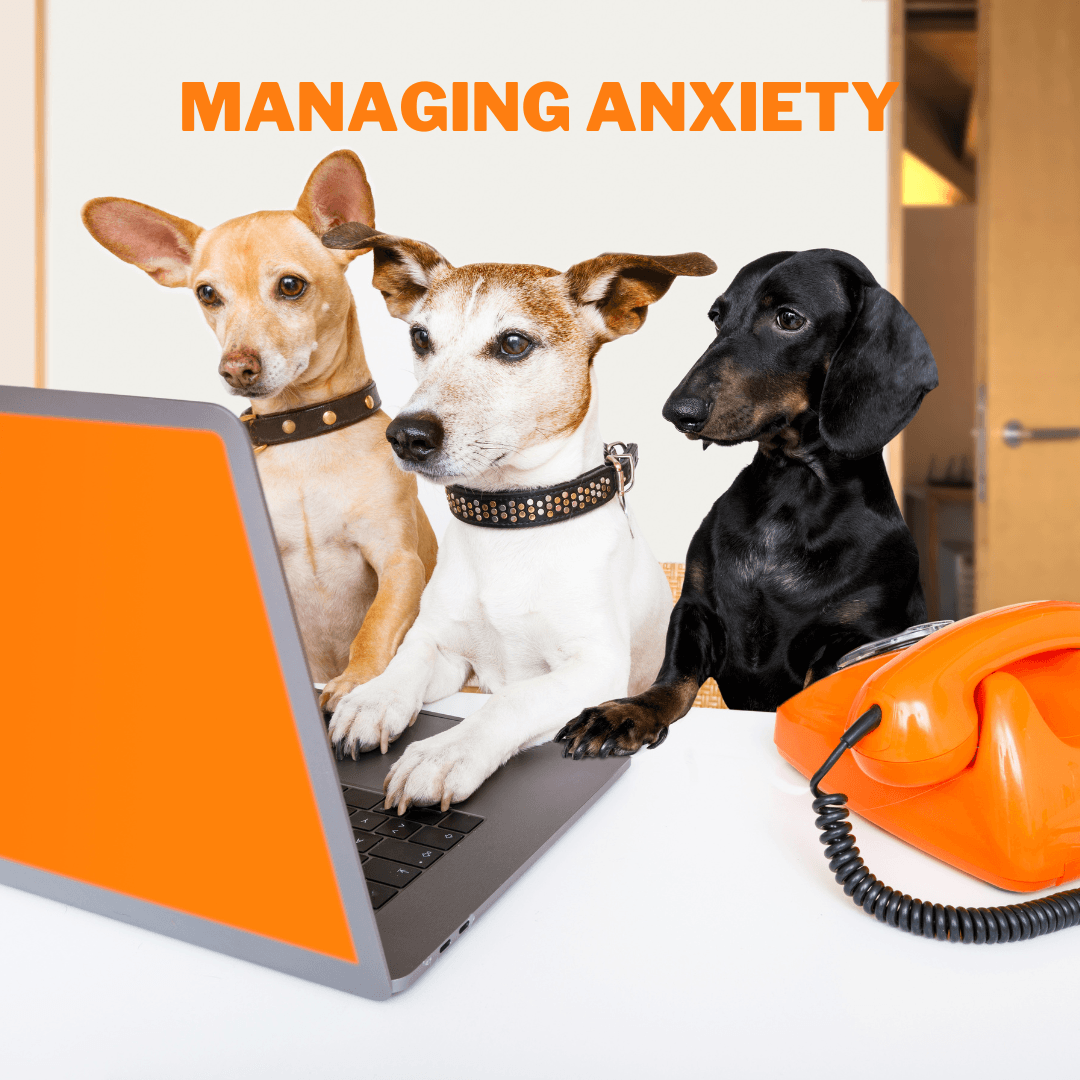
Managing Anxiety
An all-encompassing strategy that considers the underlying reasons and the symptoms are necessary to manage anxiety.
An effective treatment for anxiety disorders is cognitive-behavioural therapy (CBT). Individuals can recognize and challenge harmful thought patterns and beliefs that fuel anxiety with CBT.
Patients acquire coping mechanisms and methods through treatment to control their anxious feelings and actions.
Exposure treatment falls under this category, in which patients are gradually exposed to frightening circumstances or stimuli in a safe and encouraging setting.
Sometimes, a doctor will recommend medicine to manage anxiety. Antidepressants, sometimes called selective serotonin reuptake inhibitors (SSRIs), are frequently given drugs that help treat anxiety disorders.
Although benzodiazepines have the potential to cause dependence and abuse, they are commonly used with caution in the short-term treatment of severe anxiety symptoms.
By practicing mindfulness, individuals can reduce anxiety about the future and learn to live in the now.
Focusing on the present moment while impartially examining thoughts and sensations is a key component of mindfulness meditation. Increased self-awareness and emotional control can be attained via regular practice.
Anxiety can be decreased, and moods can be lifted by physical activity. Endorphins, endogenous stress- and anxiety-reducers, are released when you exercise regularly, whether walking, jogging, or yoga.
Stress vs. Anxiety: Exploring the Differences Between Normal Pressure and Excessive Worry
Despite their similarities, stress and anxiety are not the same. The following are the main distinctions between anxiety and stress:
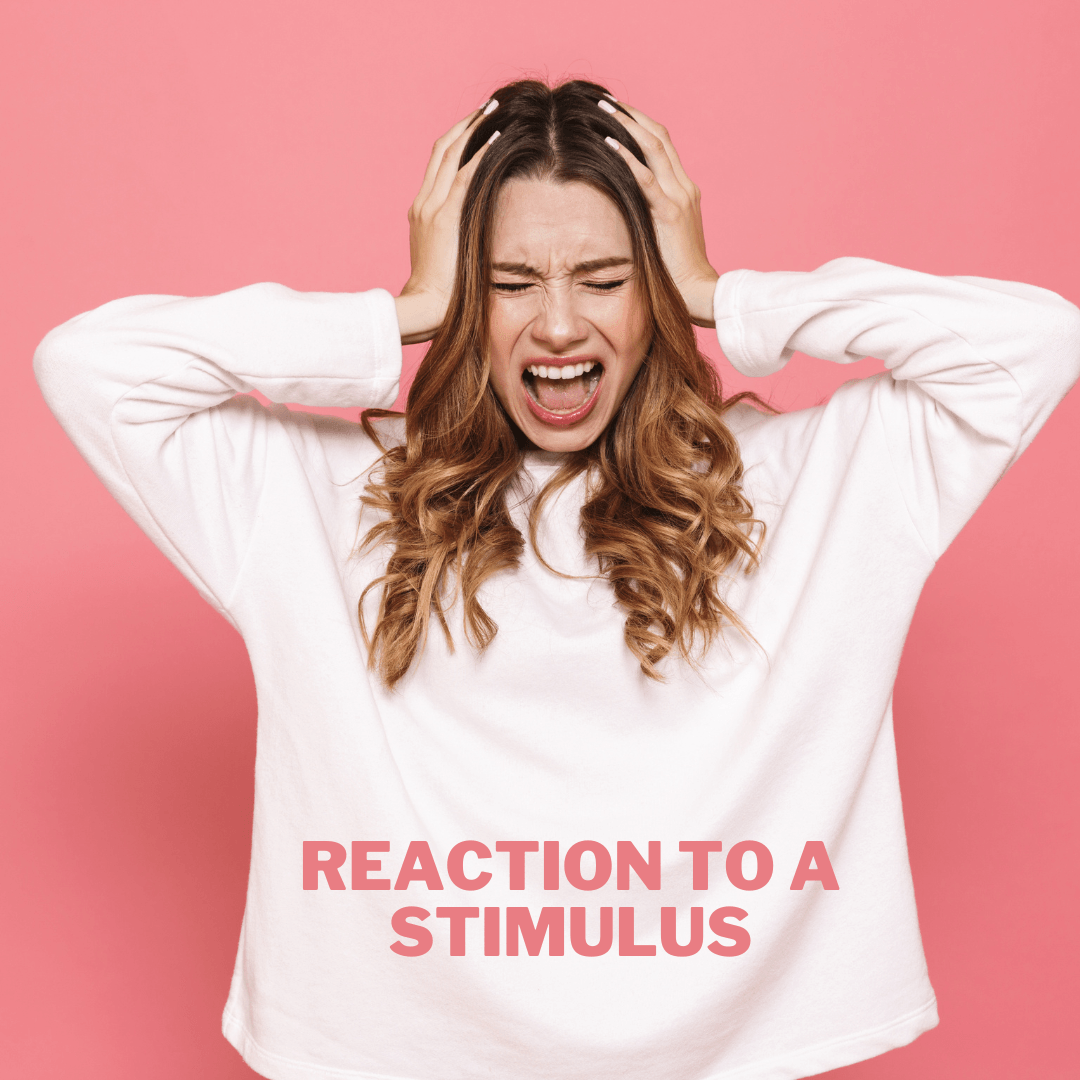
1. Reaction To A Stimulus
Stress is a reaction to outside pressures or demands, also called stressors. These stressors may be actual or perceived and may come from various workplaces, close relationships, or significant life events.
While anxiety lacks a clear cause, it is a generalized feeling of unease or fear. Worrying about prospective future consequences or events is a common anxiety-related behaviour.

2. Time Orientation
A short-term response to a particular circumstance or occurrence; stress is frequently a result of this.
The stress response tends to lessen if the stressor is dealt with and the source is eliminated. On the other hand, the duration and persistence of anxiety tend to be greater.
It frequently entails a persistent fear and dread that goes beyond the original stressor and might linger even without a clear trigger.
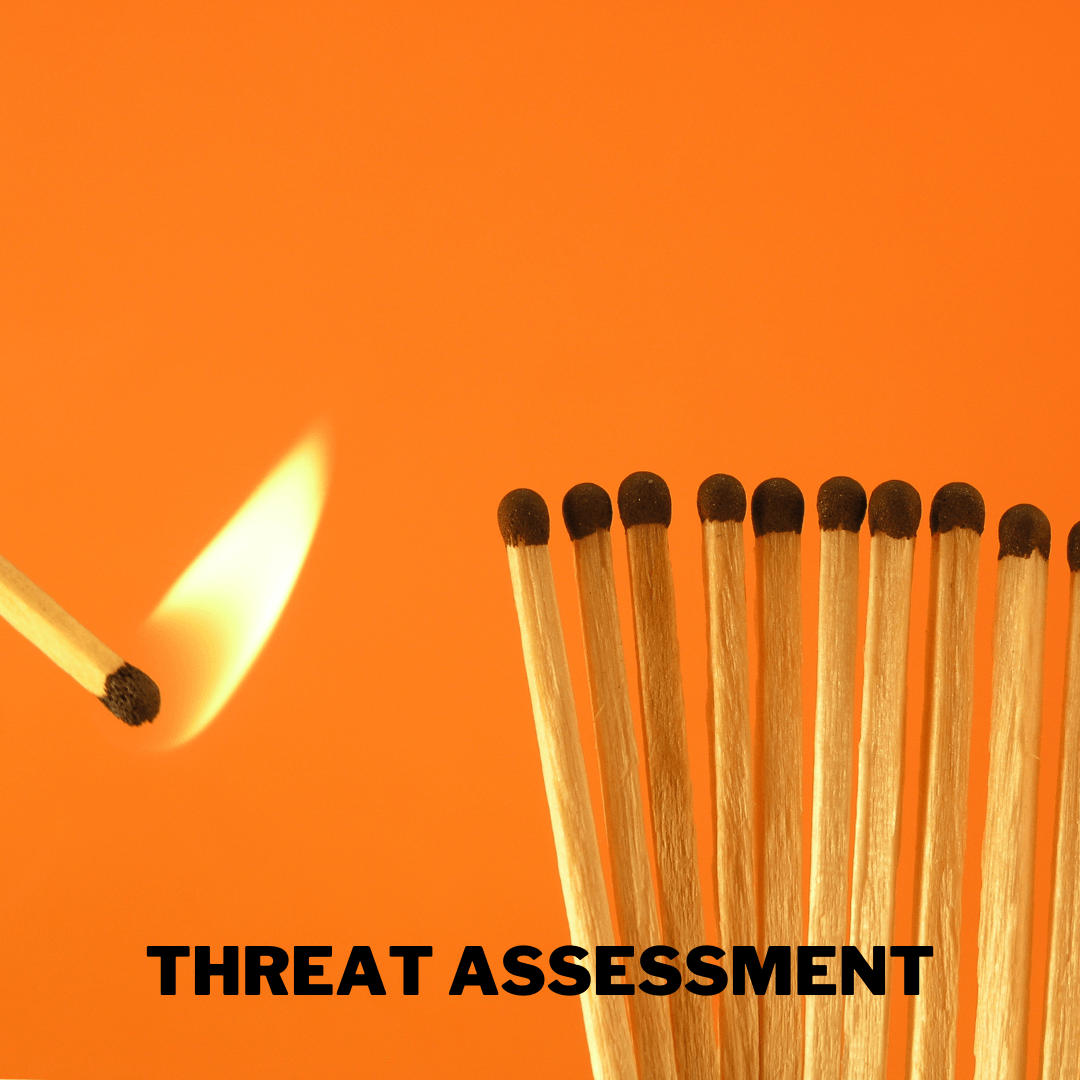
3. Threat Assessment
A perceived challenge or threat is a common cause of stress. The body's “fight-or-flight” response, a normal physiological response designed to get the person ready to handle the stressor, may be triggered by it.
A perceived threat or danger exaggerated or disproportionate to the actual circumstance distinguishes anxiety from other states. Depending on the degree of the threat, the intensity of stress may be excessive.

4. Focus And Scope
The focus of stress is usually directly tied to the stressor, such as achieving a deadline or resolving a quarrel.
It frequently has a connection to an occasion or setting. On the other hand, anxiety tends to be more widespread and diffuse, often affecting numerous aspects of life.
Various components of daily functioning may be impacted in addition to the original stressors.

5. Emotional Experience
Pressure, feeling overwhelmed, and frustration are common emotional reactions to stress. It could also be accompanied by an impulse to act quickly.
In contrast, anxiety is characterized by persistent dread, fear, and unease. Symptoms like agitation or muscle tension are examples of how it can also appear physically.

6. Specific Triggers
There are usually recognizable external or situational stress triggers, such as work deadlines, tests, or confrontations.
It frequently refers to particular occasions or situations. On the other hand, anxiety could not have a distinct or obvious trigger.
It can appear out of nowhere or be brought on by events that seem commonplace or usual.

7. Functional Impairment
Stress can affect how well people perform daily but can also provide motivation and attention under particular circumstances. It is a typical and adaptive reaction to difficulties.
However, anxiety can dramatically lower the quality of life and daily functioning. It can affect one's capacity to perform everyday tasks and interfere with one's ability to work, interact with others, and generally feel well.

8. Treatment Methods
While stress reduction approaches can be useful in dealing with stress, anxiety disorders frequently necessitate more specialized treatments.
Cognitive-behavioural therapy (CBT), exposure therapy, and medication (if required) are just a few therapeutic modalities that can be used to treat anxiety.
These methods seek to treat the root causes of stress, control symptoms, and advance long-term well-being.
Remembering that anxiety and stress can coexist and affect one another is vital. Anxiety can exacerbate stress responses, and chronic stress can cause pressure to develop or worsen.
Knowing the differences between stress and anxiety can make it easier for people to identify their symptoms, deal with them, and, if necessary, get the right assistance and care.
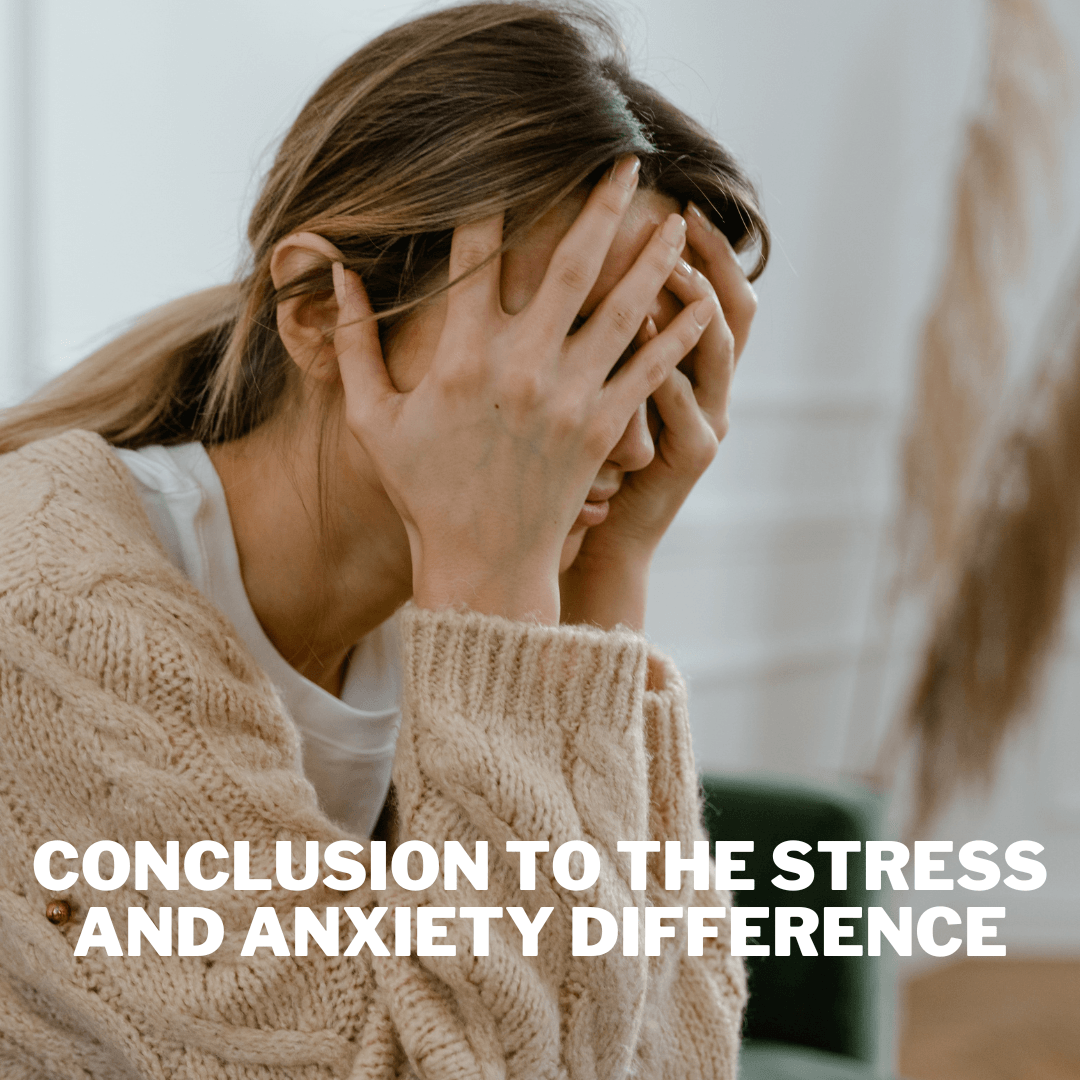
Conclusion
The emotional and physical signs and symptoms of stress and anxiety are also different.
While fear is characterized by apprehension, persistent worry, and a greater perception of threat, stress can result in emotions of pressure, overload, and irritation.
While physical anxiety symptoms, such as panic attacks, may overlap, they can also be more severe and widespread.
To manage stress, one must identify and deal with particular stressors, develop healthy coping skills, and put plans in place to lessen its effects.
Managing anxiety frequently calls for a more all-encompassing strategy, including therapy, medication, and self-care activities to address the underlying reasons, alter negative thought patterns, and reduce symptoms.
To recognize and effectively handle these sensations, it is essential to comprehend the distinctions between stress and anxiety.
It allows people to get the help they need, develop coping mechanisms that work for them, and enhance their general well-being.
Effective stress and anxiety management can help people become more resilient, live better lives, and support their mental and emotional well-being.
I trust you enjoyed this article about the Stress And Anxiety Difference. Please stay tuned for more blog posts to come shortly.
JeannetteZ
>>>Please click here to read my all-inclusive article about Lessons That Will Teach You All About Stress<<<
>>>Are you interested in Natural Healing And Stress Relief through Herbs? Please click here for my #1 Recommendation<<<
Your Opinion Is Important To Me
Thoughts? Ideas? Questions? I would love to hear from you. Please leave me your questions, experiences, and remarks about the Stress And Anxiety Difference in the comments section below. You can also reach me by email at Jeannette@Close-To-Nature.org.
Disclosure
This post may contain affiliate links. I earn from qualifying purchases as an Amazon Associate and other affiliate programs. Please read my full affiliate disclosure.
You might also enjoy these blog posts:
The Difference Between Worry Stress And Anxiety
9 Best Ways To Relieve Stress And Anger
Natural Vitality Natural Calm Gummies

